From cyber risk and political instability to air pollution and artificial intelligence - here’s how UK risk managers are thinking about threats in 2024
Each week, Airmic polls its risk manager members to gain insights about the top threats facing UK businesses.
Here, StrategicRISK has rounded up the highlights from the February data.
Cyber incidents are the top risk for 2024
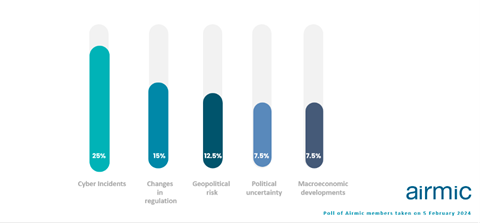
Cyber incidents – including ransomware attacks – continue to be the top risk for 2024 for the organisations that Airmic members work for.
“The increasing complexity and connectivity of risk and the escalating velocity of change has a knock-on effect on cyber risk,” said Julia Graham, CEO, Airmic.
“I’m not surprised to see cyber risk continue to top risk polls. We need to collectively tackle the cyber risk and insurance protection gap as a matter of priority.”
UK and US elections top political concerns
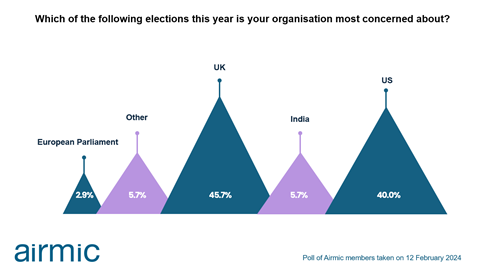
The elections in the UK and US are of the greatest concern to Airmic members by far, with 2024 being touted as the biggest election year in history. Half of the world’s population will be going to the polls in over 70 countries.
Respondents to the Airmic Big Question raised concerns over the future of the UK economy and potential policy changes in the event of a new government.
The opposition Labour party has been consistently leading in the polls for at least a year.
Meanwhile, a potential return of Donald Trump to the presidency has sparked concerns that the US could withdraw from international organisations such as the North Atlantic Treaty Organization (NATO) – with ramifications for geopolitics amid ongoing wars between Ukraine-Russia and Israel-Hamas.
“In this ‘year of elections’ a further effect could be a swing in global power,” said Julia Graham, Airmic CEO.
“According to the latest Edelman Trust Barometer report, resistance to innovation in Western societies is political. In the US this is the most extreme with rejection of innovation highest from those with a political leaning to the right. One might argue that a further Trump presidency is the greatest threat we face to innovation and global stability.”
“While the UK and US elections were always going to be key for our members and their organisations, the stakes this time round are especially high,” said Hoe-Yeong Loke, Head of Research at Airmic.
“Add potential artificial intelligence-induced election interference to the mix of geopolitical turmoil and macroeconomic uncertainty, and what you would get is a vicious circle of volatility around the world.”
Air pollution is the fastest-growing climate protection gap
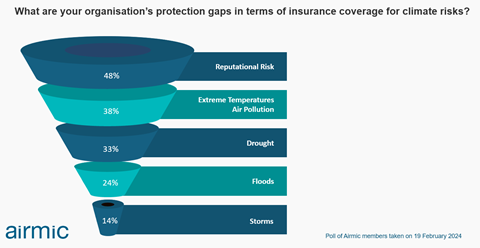
Current risk assessment tools and techniques are ill-suited for AI risks
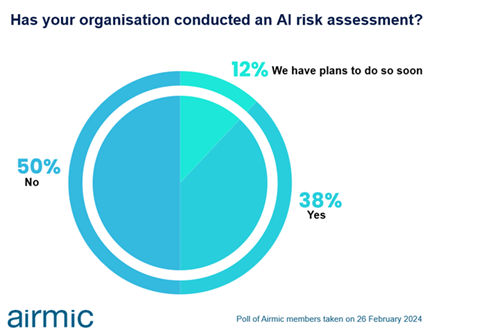
As many as 50% of organisations have not conducted artificial intelligence (AI) risk assessments, according to the survey. Data protection and intellectual property issues emerged as the top risks.
Julia Graham, CEO of Airmic, said: “Research indicates that most organisations, when they do conduct an AI risk assessment, are using traditional risk assessment frameworks better suited to the pre-AI world of assessment – this is an area of risk management still in its infancy for many.”
In research conducted last year by Riskonnect, only 9% of companies globally said they are prepared to deal with the risks associated with artificial intelligence.
Hoe-Yeong Loke, Head of Research at Airmic, said: “Many governments are just beginning to develop policies and laws specific to AI, while those that have are competing to put their stamp on how this emerging technology will develop.
“Understandably, there is no universally accepted model for assessing AI risk, but risk professionals can look to recent published standards such as ISO/IEC 23894:2023 Artificial intelligence: Guidance on risk management.”
Airmic will be looking to produce an updated methodology for AI risk assessments, in consultation with Airmic members and the industry.
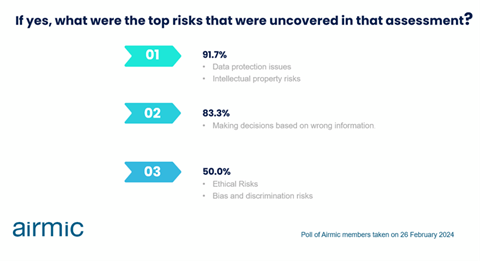






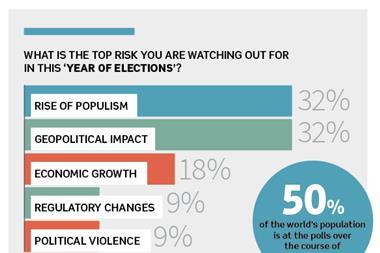






No comments yet